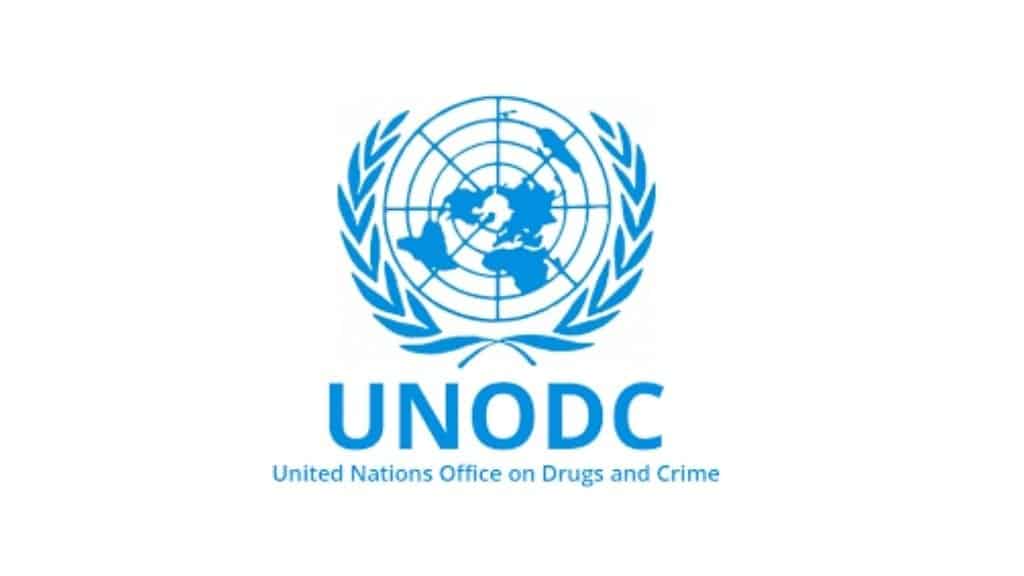The United Nations Office on Drugs and Crime (UNODC) has called on Kenya to adopt blockchain technology as a vital tool in its fight against widespread corruption in public and private sectors. This recommendation highlights blockchain’s potential to improve transparency, traceability, and accountability in a country grappling with corruption-related challenges.
Kenya’s primary corruption vulnerabilities lie in the manipulation of procurement systems and fraudulent transactions, as highlighted in numerous audit reports. By leveraging blockchain technology, Kenya can address these systemic issues effectively.
Why Blockchain Is Key to Combating Corruption
1. Enhanced Transparency
Blockchain technology offers an immutable ledger where every transaction is recorded and cannot be altered. This ensures that all financial dealings are transparent, reducing opportunities for fraud and manipulation.
For instance, in procurement, each step—tendering, bidding, awarding contracts, and payment—can be tracked and verified on the blockchain. This level of transparency discourages corrupt practices by exposing them to public scrutiny.
2. Improved Traceability
One of the significant advantages of blockchain is its ability to trace transactions back to their origin. David Robinson, UNODC’s anti-corruption advisor for East Africa, emphasized that blockchain solutions make it easier to detect and trace corrupt activities.
This traceability ensures that:
- Illicit financial flows can be identified and blocked.
- The roadmap of fraudulent transactions is exposed, aiding in investigations.
- Accountability is enforced, as culprits can be traced and held responsible.
The Role of Blockchain in Kenya’s Fight Against Corruption
1. Tackling Procurement Fraud
Procurement fraud has been a long-standing issue in Kenya, with inflated contracts and kickbacks increasing the cost of doing business. Blockchain technology can:
- Digitize and secure procurement records.
- Ensure that only authorized personnel can approve contracts.
- Provide an audit trail that cannot be tampered with.
2. Reducing Bribery and Illicit Financial Flows
Blockchain’s decentralized nature reduces the reliance on intermediaries who might exploit their positions for bribes. It also helps:
- Identify and block unauthorized transactions.
- Prevent the embezzlement of public funds by offering real-time monitoring.
- Enhance the recovery of stolen assets by tracking their movement across borders.
3. Building Public Trust in Governance
Corruption erodes public trust in institutions. By adopting blockchain, Kenya can demonstrate its commitment to accountability and transparency, fostering confidence among citizens and investors.
Global Success Stories in Blockchain Implementation
Estonia: E-Government and Blockchain
Estonia has embraced blockchain for its e-governance services, ensuring the integrity of public records and eliminating opportunities for corruption. Every citizen’s data and transaction are securely stored, allowing for easy verification and transparency.
Georgia: Land Registry System
Georgia uses blockchain to manage its land registry, preventing fraudulent land ownership claims. This has significantly reduced corruption in the property sector.
India: Blockchain in Supply Chain Management
India is piloting blockchain technology in supply chains to ensure transparency in government procurement, reducing the risk of favoritism and fraud.
Kenya’s Potential
By studying these examples, Kenya can adopt tailored blockchain solutions to address specific challenges, particularly in procurement, taxation, and financial transactions.
Challenges to Implementing Blockchain in Kenya
1. Initial Costs and Infrastructure
The implementation of blockchain technology requires significant investment in infrastructure, including hardware, software, and training for personnel.
2. Resistance to Change
Corrupt individuals who benefit from the existing systems may resist the adoption of blockchain. Overcoming this resistance will require strong political will and public support.
3. Technical Expertise
Blockchain technology demands a workforce skilled in programming, cryptography, and data analysis. Kenya needs to invest in training and capacity building to bridge this gap.
Recommendations for Successful Implementation
- Collaborate with Blockchain Experts: Kenya can partner with technology firms and organizations like the UNODC to ensure seamless integration of blockchain systems.
- Pilot Programs: Start with pilot projects in high-risk areas like procurement and taxation to test the effectiveness of blockchain solutions.
- Public Awareness Campaigns: Educate citizens and businesses about the benefits of blockchain to garner public support.
- Regulatory Frameworks: Develop robust laws and regulations to govern blockchain use, ensuring its security and ethical implementation.
- Leverage International Support: Seek technical and financial assistance from international organizations experienced in blockchain deployment.
Conclusion
Blockchain technology holds immense potential to revolutionize Kenya’s fight against corruption. By ensuring transparency, traceability, and accountability, blockchain can address systemic issues that have long plagued the nation’s public and private sectors.
As the UNODC highlights, embracing blockchain is not just about technology but about building trust in governance and fostering sustainable economic growth. With strategic planning and collaboration, Kenya can set a global example in leveraging blockchain to combat corruption effectively.
To learn more about the innovative startups shaping the future of the crypto industry, explore our article on latest news, where we delve into the most promising ventures and their potential to disrupt traditional industries.
Disclaimer: The information provided is not trading advice, Bitcoinworld.co.in holds no liability for any investments made based on the information provided on this page. We strongly recommend independent research and/or consultation with a qualified professional before making any investment decisions.

